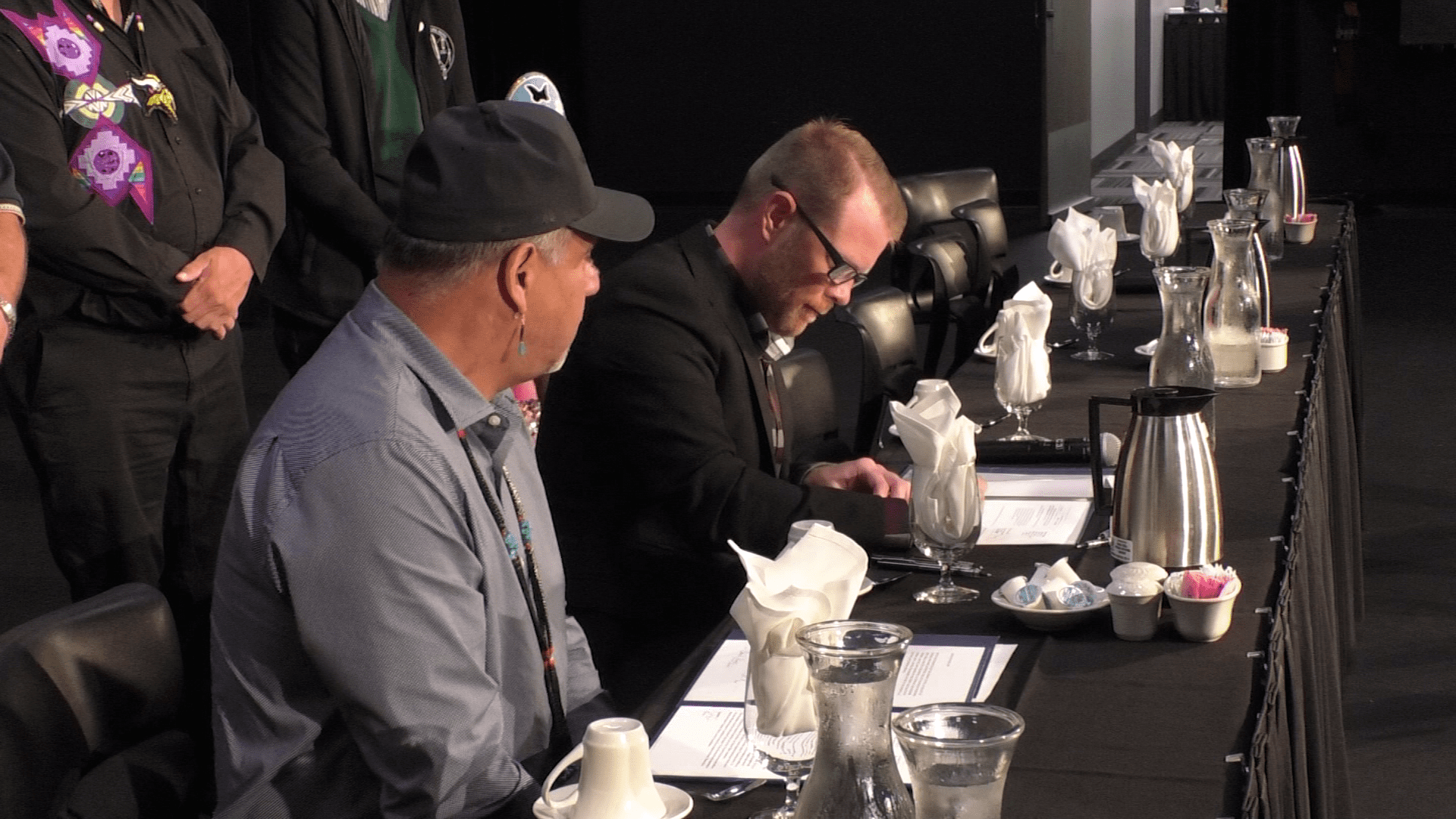Returning sacred land to The Fond du Lac Band
[anvplayer video=”5129496″ station=”998130″]
A homecoming celebration for the Fond du Lac band. The returning of Wisconsin Point sacred burial grounds.
In total, 1.6 acres are being returned to Fond du Lac. 1.4 acres at St. Francis and .2 acres at Wisconsin Point burial grounds.
“The holistic pieces that it is a resting place of our people, it guarantees that they are not going to be bothering anymore; and that is what it guarantees. It guarantees that we are going to be able to protect our past,” says Fond Du Lac Tribal Chairperson Kevin R. Dupuis.
“I think that is with me, that is probably to make a significant thin, is that they are not going to be bothered anymore.”
The burial grounds were taken away from the Fond Du Lac Band with the plan for U.S. Steel to build on the land, but it never happened.

U.S. Department of the Interior Assistant Secretary for Indian Affairs spoke to WDIO on the work it took on the federal level to help restore and return the land to the tribal communities.
“The Department of the Interior has made it a priority under President Biden to work with tribes to restore their lands. In making sure that to continue the tribal way of life. Ensuring that tribes have a homeland where they can live together, continue their cultures, keep those family connections and just every bit as important to maintain those cultural connections with their homelands and live where they have always lived.”
A new turning page was added to the history books when the transfer of the land was given back.
“For those folks whose entire history is grounded in this one place to have it also be a symbol of one of the worst crimes that have ever happened to them. Having to be forcibly removed, to be told that it is never yours again, said The City of Superior Mayor Jim Paine.
“However, I do see it as my responsibility as mayor, our responsibility as a city and a community to make that right, to say no, it is your place. It does belong to you, not just with words, but with actions, and that is what we did today.”
Thursday’s transfer of land honors the people who experienced the acts of violence, and Dupuis shares how it helps to educate those about the past and help all move forward.
“We speak for the ones who can not speak for themselves anymore. So we are obligated to the people who came before us. They signed the treaties. We speak for them because that is what we do today. But we also speak for the ones who are here today. Most importantly, we speak for the unborn. Ensure that we have a future for the unborn. So we ensure that that unborn future has the same past. So you never lose your culture, and you never lose your language.”